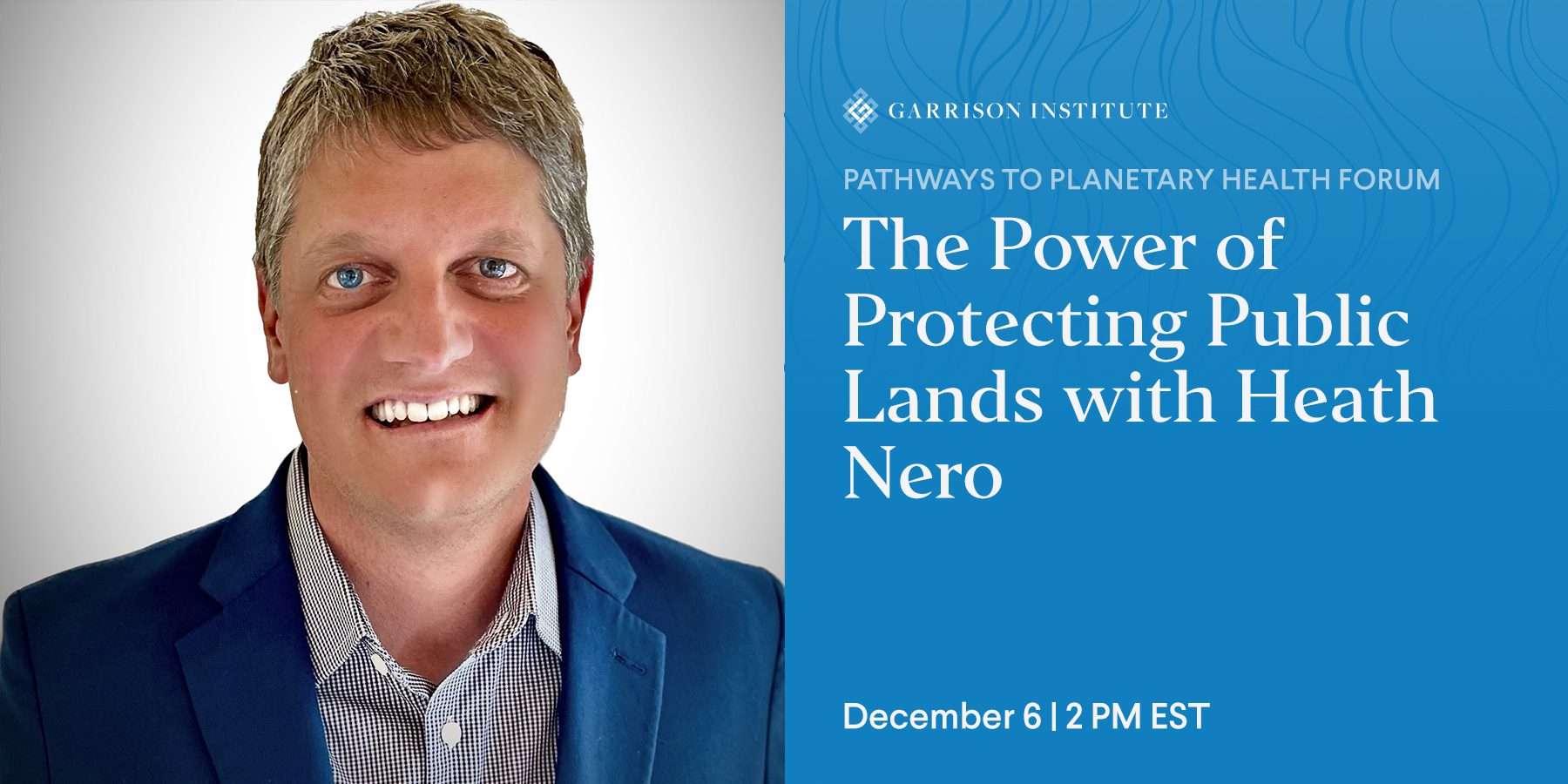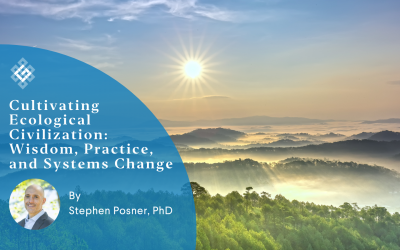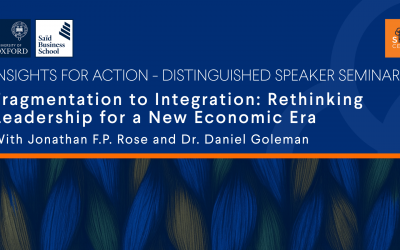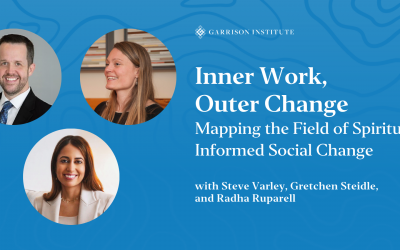On December 6th, 2022, Heath Nero joined Garrison Institute co-founder Jonathan F.P. Rose for a conversation about the importance of permanently protecting 30% of the world’s lands and oceans by 2030. Heath Nero is the Senior Program Officer in charge of Global Conservation at the Wyss Foundation. He oversees all of the Foundation’s conservation grantmaking, including the Wyss Campaign for Nature, a ten-year, $1 billion global effort.
During the discussion Heath Nero described the legally enforceable tools they use to successfully protect land in perpetuity, including easements, private land held in trust, covenants, Indigenous titling, and the most powerful protection: national park designation.
Nero elaborated that his foundation is most concerned with protecting as much acreage as possible right now within the confines of financial and political realities. They target areas that are 100,000 acres or larger, but will strive to protect smaller biodiversity “hot spots” that hold specific importance.
Through all of its various partners, Wyss has protected nearly 90 million acres of land and more than 3 million square kilometers of ocean – yet that is only .2% of the 30×30 goal. Nero called on environmentalists to act more entrepreneurial in their efforts, in order to exponentially speed up protection.
In this discussion, Nero cautioned against “fortress conservation,” in which local communities are excluded from the conservation efforts and do not reap any benefits. He highlighted that conservation is most successful when done in concert with local indigenous and first nations – in fact, that partnership can be a pathway to reconciliation and more resilient local communities and economies. Jonathan added that over 80% of the remaining biodiversity on the planet is stewarded, protected, and managed by indigenous peoples, so healthy alliances are key.
They also addressed the difficulty of securing buy-in from governments, firms, and the general public, as industrical societies do not assign a monetary value to the priceless benefits of a functioning planet. Thus, within this extractive mindset, if something is not monetized it is not valuable. “The cheapest and best way to benefit from biodiversity is to preserve what’s left right now,” said Nero. “Protected land solves so many problems at once.”
Jonathan concluded the discussion by observing the irony that people often see “nature” as peripheral and hang all their hopes and fears on financial status – yet currency is an immaterial human construct and nature, i.e. the foundation of all life, is most real.
This interactive online event was part of a continuing series in the Garrison Institute’s Forum on Pathways to Planetary Health (PPH). Pathways to Planetary Health explores the moral, ethical, and human behavioral dimensions of the search for regenerative solutions, including Half-Earth, Regenerative Economics, Ecological Civilization, and The Common Good.




